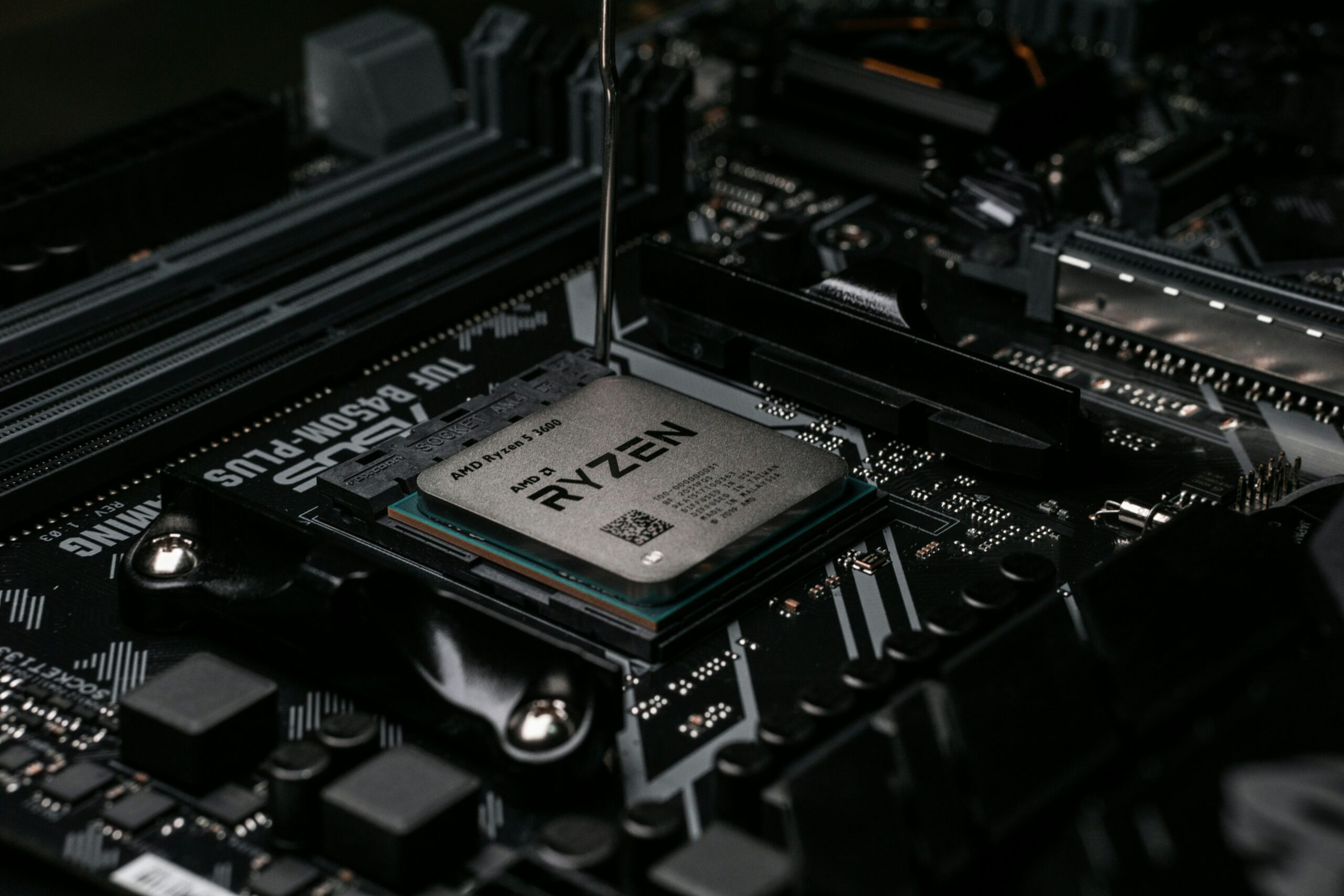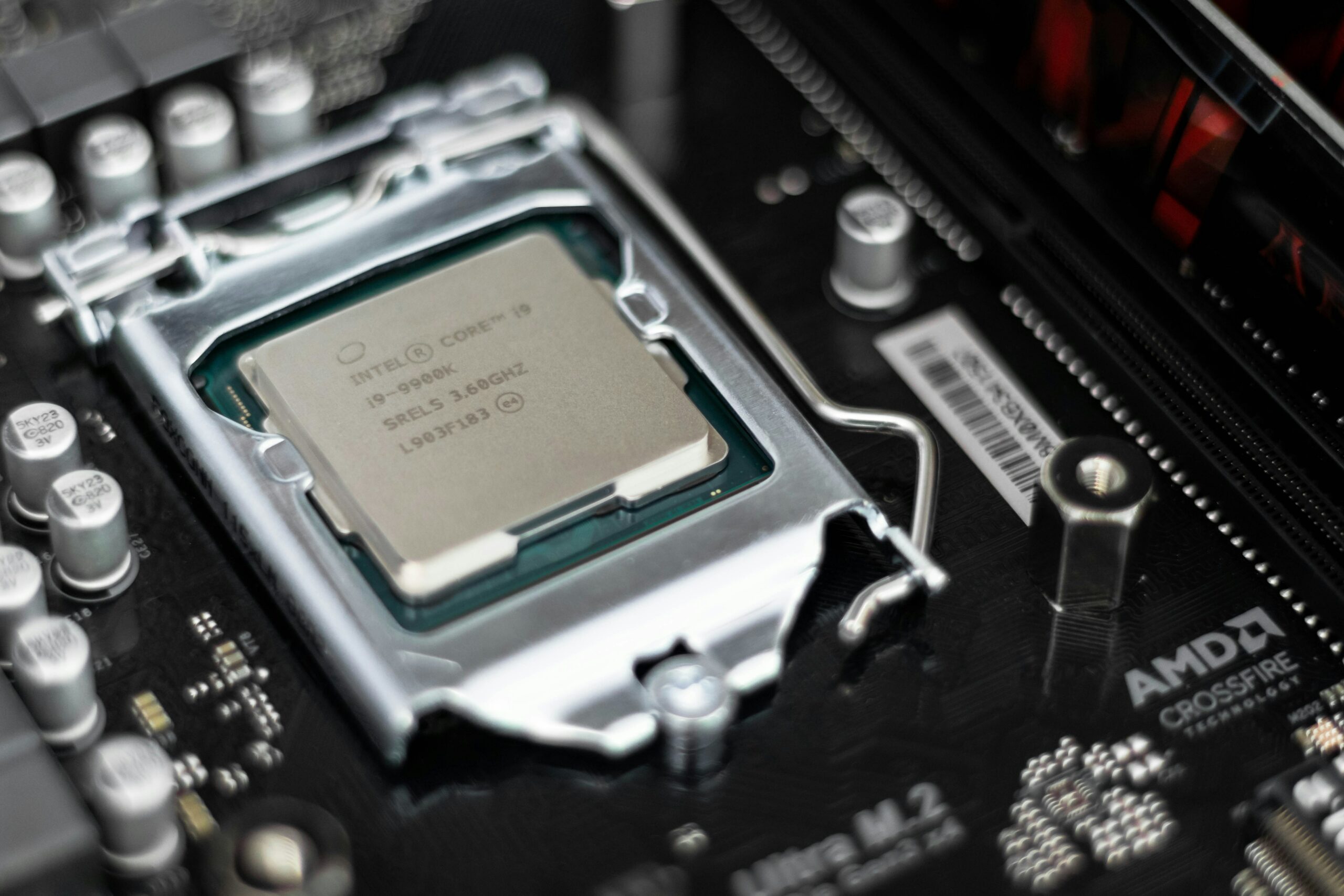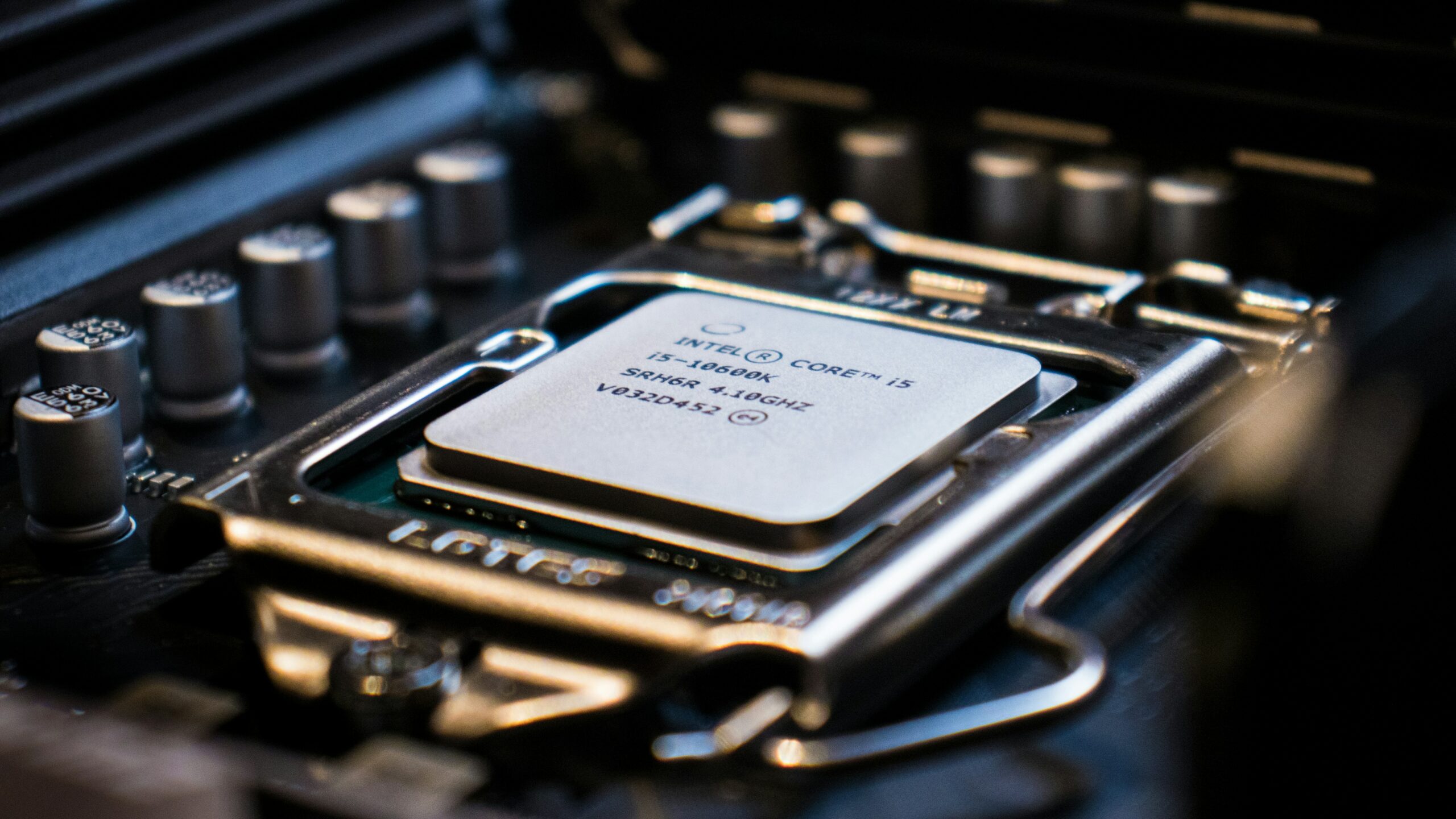The Central Processing Unit (CPU) is the brain behind almost all the operations your computer performs. It’s a critical component that affects everything from gaming ability to efficiency in productivity tasks. Below, we break down its operation, importance, key components and how it influences the performance of your computer.
What is a CPU and Why is it Important?

The CPU is fundamentally an electronic chip located on the motherboard of the computer. It is responsible for executing program instructions by performing basic arithmetic, logic, control, and input/output operations. Its importance lies in its ability to directly influence the overall performance of the system. A faster CPU with more cores can handle more tasks simultaneously, resulting in a smoother and more efficient user experience.
How a CPU Works: An Inside Look
The operation of the CPU can be divided into three main activities: fetch, decode, and execute. During the fetch cycle, the CPU fetches instructions from the computer’s memory. Then, in the decode loop, it interprets these instructions and finally, in the execute loop, it performs the required action. This process is repeated millions of times per second, allowing the computer to perform complex operations based on basic instructions.
Key Components of the CPU and Their Purpose
- ALU (Arithmetic Logic Unit): Performs all arithmetic and logical operations.
- CU (Control Unit): Directs the operation of the CPU and the entire computer by controlling the flow of data within the CPU.
- Registers: Provide temporary storage for instructions and data. They are critical to processing speed as they allow quick access during the execution cycle.
- Cache: It is a fast-access memory that stores copies of the data and instructions that the CPU uses frequently, reducing the time it takes to access this data from main memory.
How It Affects Your Computer’s Performance

The speed of the CPU, measured in gigahertz (GHz), and the number of processing cores and threads determine its ability to handle multiple tasks and complex operations. A CPU with a higher frequency and more cores can execute more instructions per second, improving performance in demanding applications and multitasking. However, other factors like RAM, graphics card, and storage also play an important role in the overall performance of the system.
Understanding the CPU and how it works is essential for anyone looking to optimize their computing experience or make informed decisions when upgrading or building a PC. The CPU remains one of the most vital components of any computer system, dictating the efficiency with which tasks can be executed and data processed.
Remember that at Ibertronica.es we offer you a wide range of CPUs to satisfy all your needs. From affordable solutions to high-performance options, we have the perfect CPU for you.
You can also contact us through our website, phone (917 10 95 15) email ([email protected]) or social networks, and request the necessary information to carry out your choice. An Ibertronica advisor will assist you and help you choose the technology that best suits your needs and objectives.







